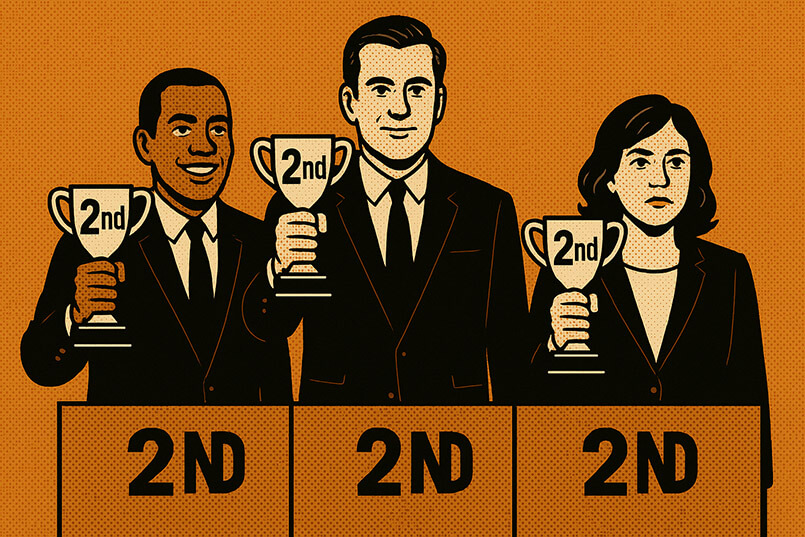In our “State of the Pitch Research,” we’ve found that agencies regularly report being told they were unsuccessful, but were a close second. Most recently, an agency that heard they came in a close second checked with the other two agencies, only to discover that they, too, were told they were a close second. But why would a marketer tell such an easily exposed lie?
A Case Study in Misleading Feedback
A recent pitch resulted in the marketer informing us that they were happy to debrief all of the unsuccessful agencies, which is something we insist upon. A few days later, the CEO of one of those agencies called me to thank us for running such a great pitch process and share their disappointment that they had come in a close second. I was surprised because, based on the client scoring and comments, they were actually a distant third. I checked with the other unsuccessful agency and discovered they were also told they were a close second, which was true, but nevertheless misleading, as they were still not in real contention.
The Motivation Behind the Deception: Protecting Feelings
When I asked the marketer why they had told both agencies they were a close second, they told me they wanted to protect the agencies’ feelings. They explained that it is a relatively small industry, and they did not want to upset the agency, which would already be disappointed about missing out. It appears they are not alone in this thought. It was clearly time to share with them the concept of the “Silver Medal Syndrome”.
The Silver Medal Syndrome
The “Silver Medal Syndrome” refers to the psychological phenomenon in which athletes who win a silver medal often feel less happy than those who win a bronze medal. This is because silver medallists tend to compare themselves to the gold medallist, focusing on the fact that they missed out on winning the top spot. Bronze medallists, on the other hand, focus on being on the podium at all.
Psychological Research and the Silver Medal Syndrome
This is well documented in psychological research, as reported in Scientific American in 2006. Psychologist David Matsumoto of San Francisco State University studied facial expressions following judo matches at the 2004 Summer Olympics. Observing eighty-four athletes from thirty-five countries at three different times—immediately after their matches, when they received their medals, and when they posed on the podium—he identified an interesting paradox.
- Thirteen of the fourteen gold medal winners smiled immediately after their winning match
- Eighteen of the twenty-six bronze medallists smiled.
- None of the silver medallists smiled immediately after their match ended.
Studying the silver medallists’ facial expressions revealed that the expressions ranged from sadness (43%) to contempt (14%) to neutral (29%). It was not that the silver medal winners were less happy than the gold medallists, but they displayed discrete, yet negative emotions.
The “Number One Loser”
Comedian Jerry Seinfeld summed it up best when he said, “The Olympics is really my favourite sporting event. Although I think I have a problem with that silver medal. Because when you think about it, you win the gold – you feel good, you win the bronze – you think, ‘Well, at least I got something.’ But when you win that silver, it’s like, ‘Congratulations, you almost won. Of all the losers, you came in first of that group. You’re the number one loser. No one lost ahead of you!'”.
Why the “Close Second” is a Problem in Pitching
The problem is, if agency pitching were an Olympic sport, even if you come a close second, you still don’t get a medal. All you get is the dismal feeling that perhaps if you had done something different, you would be taking home the gold. If you really care about the unsuccessful agencies’ feelings, please don’t tell them they came a close second, even if they did.
A better approach is practicing Radical Candor
This is why, at TrinityP3, we consciously decided always to encourage our clients to provide agencies, successful or not, with honest and constructive feedback. And if our clients are unwilling or unable to provide it (and this challenges many), then we will. Recently, this approach to pitch feedback has been given a name and a framework – radical candor.
A BetterPitch demands better feedback
In delivering a better pitch processes and experience for all involved, TrinityP3 has developed the BetterPitch framework. You can read more about the BetterPitch or contact us to discuss a better pitch selecting your agency and marketing services suppliers.




